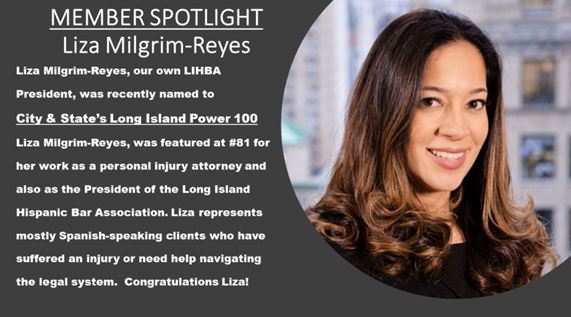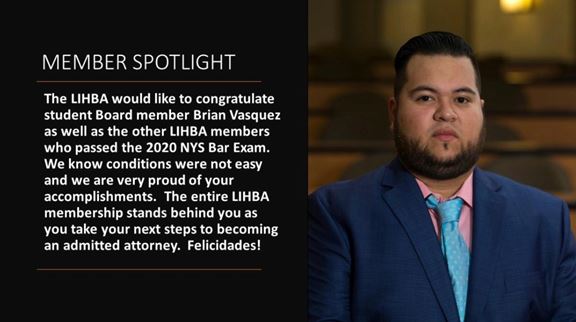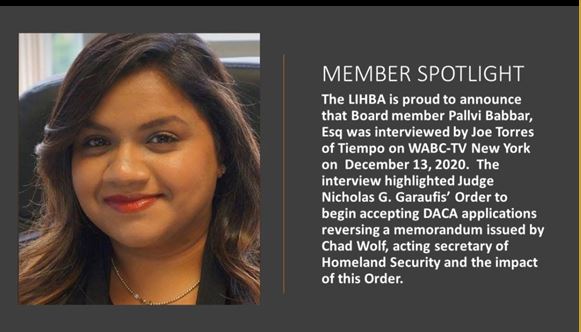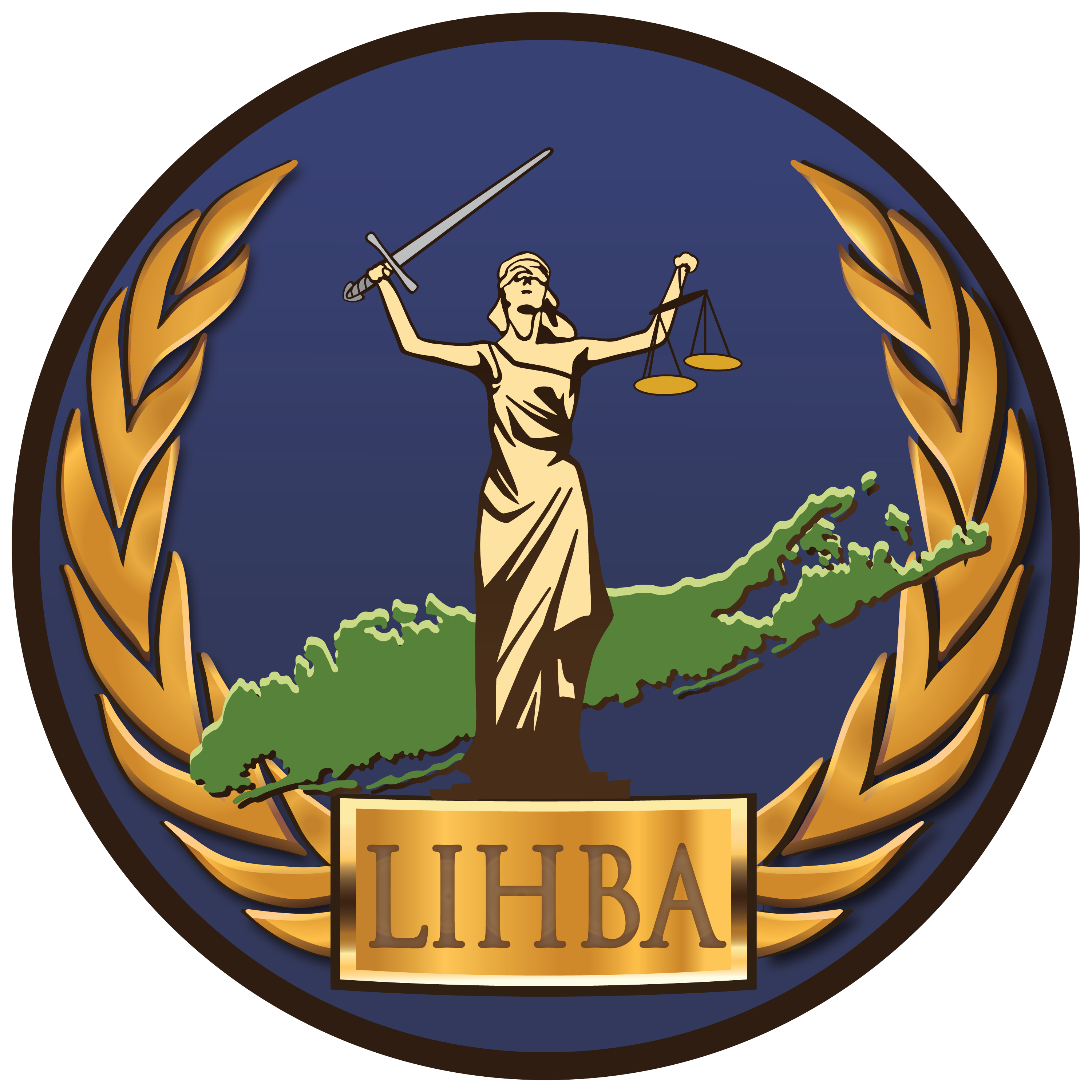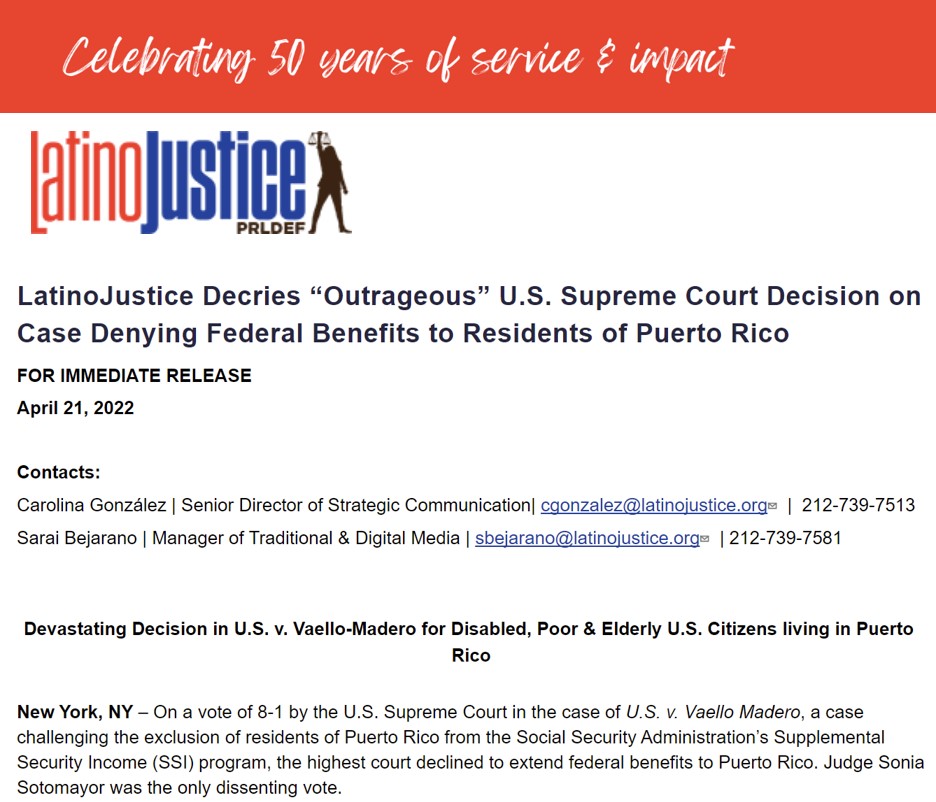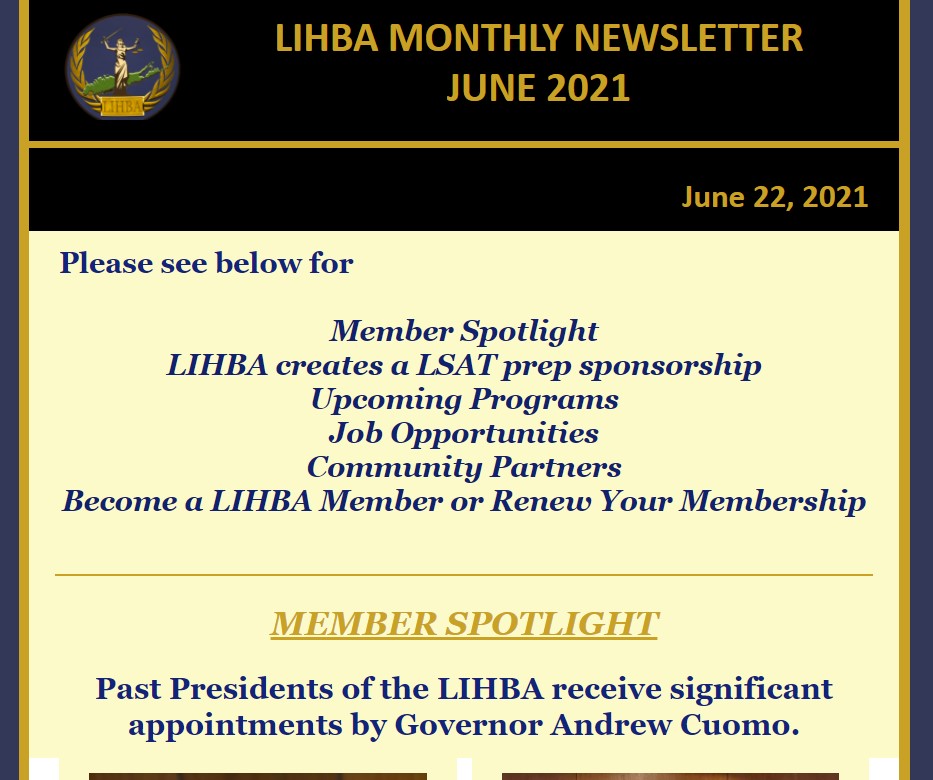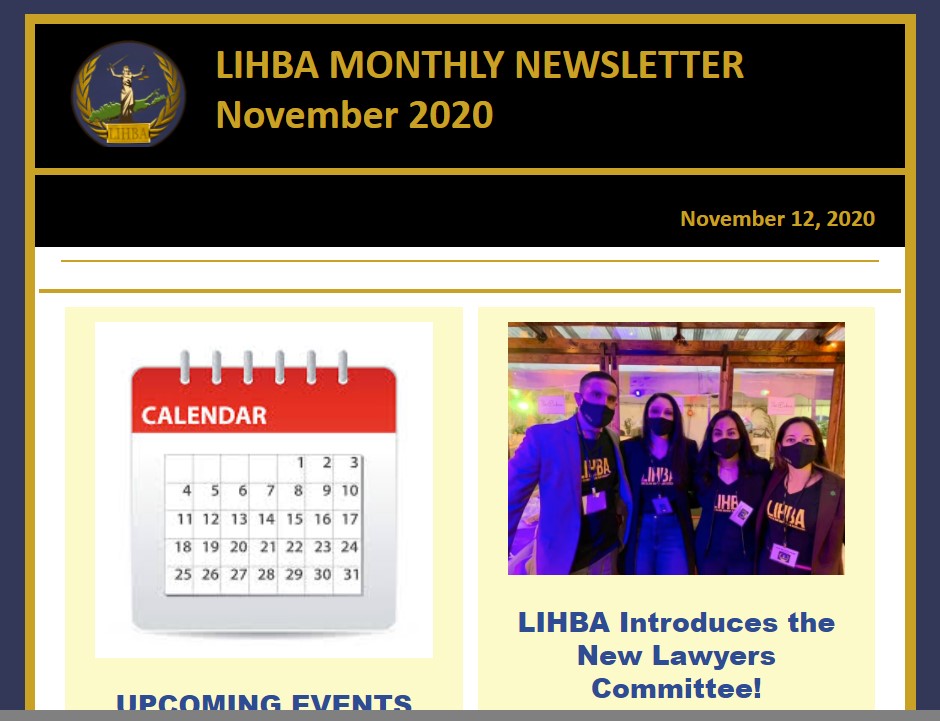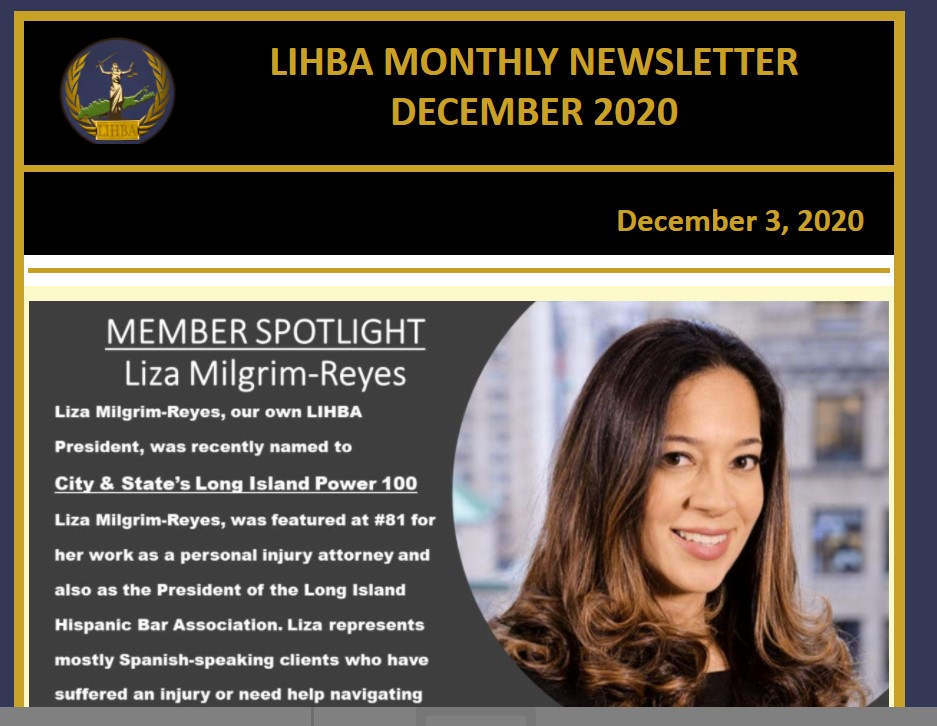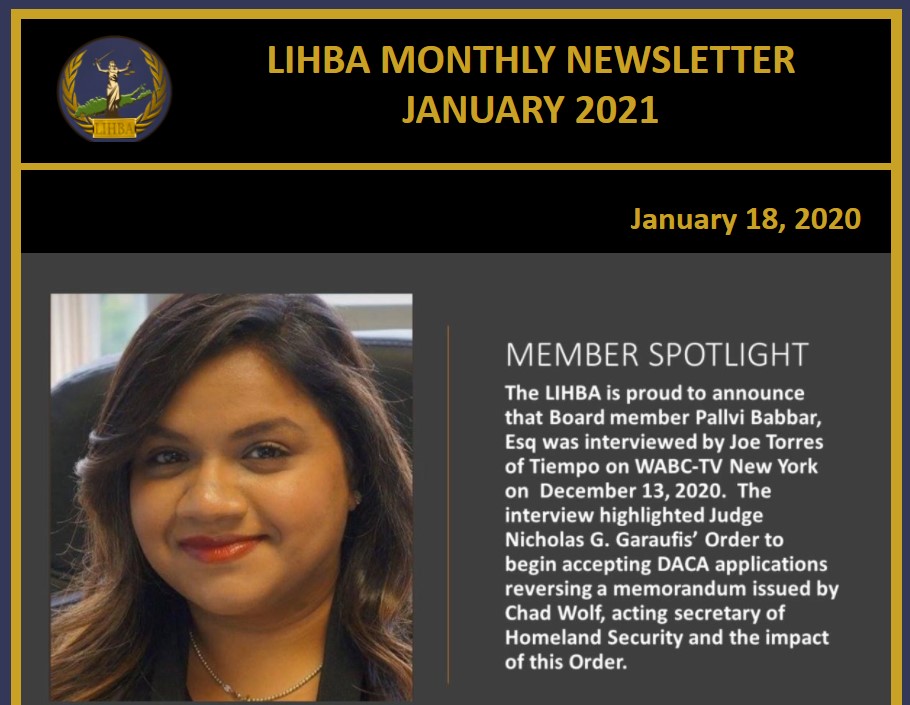Breaking News:
PRESS RELEASE
For immediate release: July 1, 2023
Contact: Lihbacontact@gmail.com
LIHBA STATEMENT ON SUPREME COURT RULING IN STUDENTS FOR FAIR ADMISSION, INC. v. PRESIDENT AND FELLOWS OF HARVARD COLLEGE
The Executive Board of the Long Island Hispanic Bar Association (LIHBA) strongly denounces the United States Supreme Court’s 6-3 decision in Students for Fair Admissions, Inc. v. President and Fellows of Harvard College which ended the use of affirmative action in higher education. Challengers in the case targeted Harvard and the University of North Carolina, arguing that their admissions programs which employed affirmative action violated equal protection principles, dashed the promise of a colorblind society and discriminated against Asian Americans. They asked the court to overturn established precedent arguing that higher education should explore and further develop race-neutral alternatives to achieve diversity.
In fact, as many education experts have already pointed out since the decision came out today, the decision will all but ensure that elite institutions become whiter and less Black and Latino. The Court’s decision, written by Justice John Roberts with strong dissents read from the bench by Justices Sonia Sotomayor, Ketanji Brown Jackson and Elena Kagan, is a further example of the Court ignoring both well-established precedent and the racial reality of living in the United States as a person of color.
The decision does nothing to wipe out the well-known practice of favoring legacy admissions for students who have a parent or sibling that attended the university or to eliminate the less-public practice of taking substantial donations to endow buildings or scholarships as another way of getting entry.
By ending affirmative action, the Court also usurps the authority of universities and colleges from making admission determinations based on a desire to create a diverse campus experience for their students.
For centuries, these institutions employed racist admission practices predominantly to keep out Black applicants; later decades saw racist admission practices to keep out Latinos and women as well. Affirmative action was not a cure-all to racial imbalance at places of higher learning, but it was a step in the right direction, and it was effective in giving entry to applicants who would have otherwise been rejected even though just as qualified. For example, women made significant gains under affirmative action. In the field of law, women used to be only 3% of the legal profession before affirmative action. After its implementation, the percentage of women lawyers quickly rose to 30% and now, in many law schools, women make up over 50% of students.
By taking away the right of a university or college to consider race in its admissions practice, SCOTUS ignores the reality that without such a system in place, these institutions may very well return to become guarded bastions for the privileged.
LIHBA also denounces the Court’s decision in 303 Creative LLC v Elenis where the Court held that a business may refuse service to same-sex couples, under the First Amendment. Supreme Court Justice Sonya Sotomayor authored the dissent stating “Time and again businesses and other commercial entities have claimed a constitutional right to discriminate and time and again this court has courageously stood up to those claims. Until today. Today, this court shrinks.”
LIHBA congratulates Hon. Joseph A. Zayas on his recent appointment as the first Latino/Puerto Rican Chief Administrative Judge
This groundbreaking achievement is a reflection of his exceptional commitment to justice, integrity, and service to the community. This momentous appointment serves as a beacon of hope and inspiration for aspiring legal professionals from diverse backgrounds.
While we applaud his appointment, we hope that this is the beginning of increased representation of the Latino community in judicial positions throughout our community. While New York’s Hispanic community makes up approximately 19% of the total population of New York, only 7% of judges statewide are of Hispanic descent.
Judge Zayas has never forgotten his Puerto Rican roots and has been a dedicated supporter of the Hispanic community. Judge Zayas’ appointment sends a clear message that the State acknowledges the growing importance of the Hispanic population and allows Hispanic New Yorkers to have individuals that represent them at the top of the legal profession.
We look forward to supporting the new Chief Administrative Judge in his new role and witnessing the transformative impact his work will have on our legal landscape. We are confident that his tenure as Chief Administrative Judge will be marked by unwavering dedication to justice and the continued advancement of our profession.
Sincerely,
The Executive Board of the Long Island Hispanic Bar Association
The Presidents' Council of the Coalition of Latino Bar Associations condemns recent verbal attacks made against the Honorable Justice Juan Merchan A.J.S.C., and Manhattan District Attorney, Alvin Bragg
The Presidents' Council of the Coalition of Latino Bar Associations, comprised of the Dominican Bar Association, the Long Island Hispanic Bar Association, the Hudson Valley Hispanic Bar Association, the Latino Lawyers of Queens County, and the Puerto Rican Bar Association, condemns recent verbal attacks made against the Honorable Justice Juan Merchan A.J.S.C., and Manhattan District Attorney, Alvin Bragg, who are respectively presiding over and prosecuting the case of People of the State of New York v. Donald J. Trump. Former President Trump has repeatedly made concerning and offensive statements on social media against both DA Bragg and Justice Merchan and his immediate family.
As recently reported in the media, those offensive statements have been followed by multiple threats made against Justice Merchan and his immediate family, including harassing calls and emailed death threats. The media has additionally reported that DA Bragg and other members of his staff, have also received threats in the form of calls, emails, and letters. These vicious ad hominem attacks against Justice Merchan and DA Bragg are dangerous. These repulsive statements and comments have no place in civil society and have the potential to incite violence, civil unrest, and pose a serious threat to the safety of these individuals and their families.
The Presidents' Council of the Coalition of Latino Bar Associations strongly condemns the use of such character assassination, derogatory comments, and inflammatory, vicious, and racist statements. While we commend Justice Merchan for not issuing a gag order, we do call upon the lawyers representing Former President Trump in this matter, Todd Blanche, Susan Necheles, and Joseph Tacopina, to admonish their client to refrain from the use of such incendiary rhetoric and unacceptable, vile, and racist language, and allow the court system to do its job without the use of fear and intimidation.
LIHBA as Amicus
LIHBA has joined LatinoJustice PRLDEF as amicus in Supreme Court Matter regarding Financial Oversight and Management Board for Puerto Rico v. Centro de Periodismo Investigativo, Inc.
Issue: Whether the Puerto Rico Oversight, Management, and Economic Stability Act’s general grant of jurisdiction to the federal courts over claims against the Financial Oversight and Management Board for Puerto Rico and claims otherwise arising under PROMESA abrogate the Board’s sovereign immunity with respect to all federal and territorial claims.
Oral Argument before the Supreme Court of the United States
November is Puerto Rican Heritage Month in New York State!
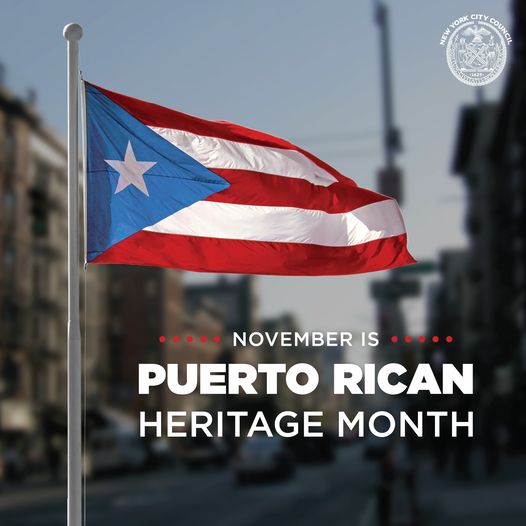
Governor Kathy Hochul issued a proclamation celebrating Puerto Rican Heritage Month in New York State. The month-long observance will recognize the longstanding, strong partnership between New York State and Puerto Rico and highlight the important contributions of people of Puerto Rican descent in the state. The proclamation also acknowledges the impact of Hurricane Fiona, which struck the island this past September, and ongoing support, supplies, and other relief efforts to people in Puerto Rico and its government.
"With one of the largest Puerto Rican populations in our nation, New York has a rich history and a long connection with the people of Puerto Rico," Governor Hochul said. "By designating November as Puerto Rican Heritage Month, we are honoring and celebrating the longstanding contributions of Puerto Rican communities across the state in all areas - business, arts and culture, science and technology, athletics, public service, and more."
The annual observance of Puerto Rican Heritage Month will highlight the traditions and customs of the Puerto Rican community, as well as its accomplishments here in New York, across America, and in Puerto Rico. The month-long celebration will spotlight the contributions of Puerto Rican communities across New York on social, cultural, and economic development of the state and nation and how they have established strong foundations of life in the neighborhoods of New York City and across the state.
The proclamation also acknowledged the devastating impacts of Hurricane Fiona on the island and the resiliency that Puerto Ricans have showed in the aftermath. Since Hurricane Maria, New York has helped Puerto Rico secure billions of dollars in federal funding from FEMA to recover and rebuild the island's energy infrastructure, in addition to NYPA performing technical assessments of powerplants and substations on the island. In the wake of Hurricane Fiona, the worst storm to hit the island since Hurricane Maria, Governor Hochul announced New York State actions to assist Puerto Rico in relief efforts. These efforts have further strengthened New York's long-standing commitment to help Puerto Rico in its reconstruction and recovery.
LIHBA STATEMENT ON SUPREME COURT OVERTURNING ROE V. WADE
The President and Executive Board of the LIHBA decry the Supreme Court’s Ruling in Dobbs v. Jackson Women’s Health Organization, which struck down the landmark decision of Roe v. Wade after 50 years of providing safe access to abortion. Roe’s reasoning has been repeatedly upheld and people all across the country had relied on its long-standing precedent as the law of the land to guide their lives and family planning in accordance with its constructs and the many cases that followed in its path.
By placing the decision of whether to allow access to this healthcare to the States, the Court strips women of their dignity and autonomy and eviscerates the right to privacy – that doctrine, first outlined by Louis Brandeis and Samuel Warren in 1890 can best be explained as the fundamental right to be left alone and to be allowed to make the most private decisions regarding our health and well-being by ourselves without government intrusion. Placing the decision in the hands of the States also creates a divided nation where some will have ready access to this basic healthcare right while others may be left to die by being denied abortion even in cases where pregnancy imperils the mother’s health. The overwhelming impact of this decision will be endured by marginalized communities and the poor. Many of the States that will likely pass the strictest abortion restrictions have large Latino populations. Pregnant residents in those States may not have the finances to travel to abortion-access States. They live in counties without public transportation, and which are hundreds of miles from the closest medical centers providing abortion.
The Court’s decision in Dobbs follows on the heels of the Court striking down New York’s century-old sensible gun control legislation in New York State Rifle & Pistol Association v. Bruen. Here, the Court said the States do not have the right to limit concealed gun-carrying by persons in public places. Once again, it is likely communities of color that will be most impacted by this ruling. Five other states have similar requirements: California, Hawaii, Maryland, Massachusetts, and New Jersey. These states have some of the lowest rates of gun violence in the country.
Finally, as lawyers, the LIHBA Executive Board is disturbed and disheartened that the Supreme Court has clearly taken a different path from that which we learned about in law school and in practice. The Supreme Court has made clear that it is no longer the ultimate bastion where marginalized communities can seek redress and it cannot be counted upon to protect them.
LIHBA encourages its members and the Latino community to, now more than ever, work towards passing effective State and Federal Legislation to restore these important and fundamental protections we lost. We need to support local, State and Federal legislative candidates across the country that can be counted on to work towards reversing this course. We need to register our community as voters and get them to the polls. This past week highlighted the importance of the right to vote. Now, only from the power of the voting booth can we expect to effectuate actual change for our community.
LIHBA SUPPORTS PAST-PRESIDENT JUDGE HECTOR LASALLE FOR APPOINTMENT TO THE NEW YORK STATE COURT OF APPEALS
PRESS RELEASE
LIHBA announces its support for the Hon. Hector D. LaSalle to be chosen by Gov. Hochul for the position of Chief Judge of the Court of Appeals.
On November 26, 2022, the Long Island Hispanic Bar Association (LIHBA) wrote a letter of support to Gov. Kathy Hochul encouraging the Governor to appoint the Hon. Hector D. LaSalle to the position of Chief Judge of the New York Court of Appeals, the State’s highest court. In the letter, LIHBA touts Judge LaSalle’s administrative skills as Presiding Justice of the Appellate Division Second Department as well as his connection to and support for the Hispanic community. Judge LaSalle previously served as President of LIHBA and was one of its founding members.
For more information, please contact the Long Island Hispanic Bar Association at lihbacontact@gmail.com.
KETANJI BROWN JACKSON TO SERVE ON THE U.S. SUPREME COURT
On February 25, 2022, President Joe Biden nominated Judge Ketanji Brown Jackson to become the 116th Associate Justice of the United States Supreme Court.
On April 7, 2022, a bipartisan group of Senators confirmed Judge Jackson's nomination.
Judge Ketanji Brown Jackson is an exceptionally well-qualified jurist whose credentials, experience, and evenhanded approach to the administration of justice made her an outstanding candidate for the Supreme Court.
Last year, Judge Jackson was confirmed by this Senate on a bipartisan basis to serve on the D.C. Circuit. Before her confirmation to the D.C. Circuit, Judge Jackson served on the United States District Court for the District of Columbia. She was confirmed to this role unanimously and issued more than 500 opinions on cases involving a range of important issues—from the separation of powers to the reach of the Fourth Amendment to collective bargaining rights. She additionally has prior experience as a Vice Chair and Commissioner on the U.S. Sentencing Commission, as a federal public defender, as a lawyer in private practice, and as a law clerk at all three levels of the federal Judiciary, including for Justice Breyer.
The historic nomination of Judge Jackson is an important step toward making the Supreme Court look more like the nation as a whole.
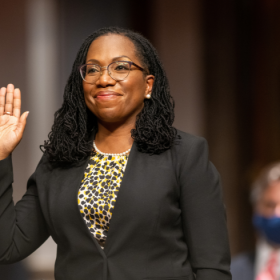
Former LIHBA President named to midlevel state appellate court
Helen Voutsinas, a Nassau County judge, has been appointed by Gov. Kathy Hochul to the midlevel appellate court handling appeals originating from 10 downstate counties including Nassau and Suffolk.
The appointment of Voutsinas, 47, was announced Friday afternoon by Hochul’s office. The court is the Appellate Division’s Second Department. New York State is divided into four.
For the full story, please click here
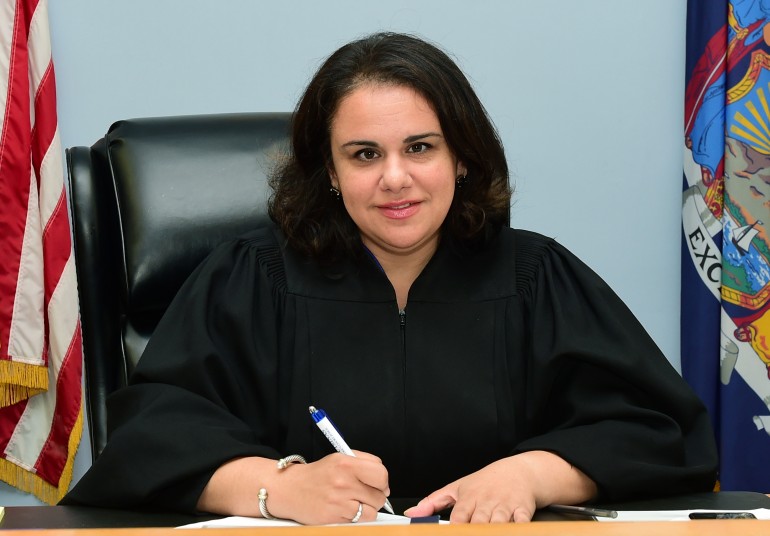
Current Newsletter
Archived Newsletters
Past Member Spotlights
